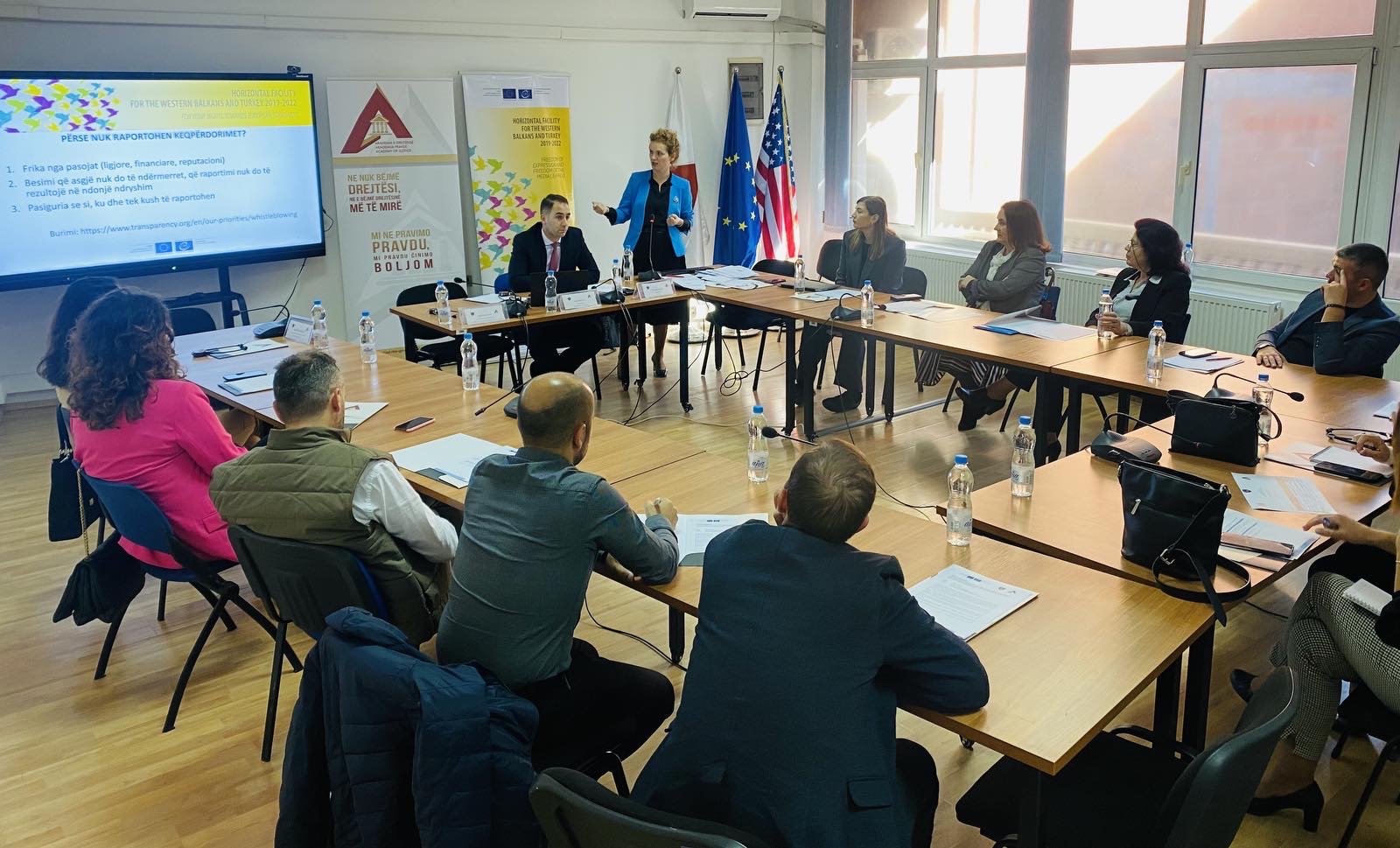Legal advisors and administrative staff of courts and prosecutions were trained on European Union, Council of Europe, and ECtHR standards on protection of whistleblowers as well as on domestic legislation, and its implementation in practice.
There was an in-depth elaboration of the jurisprudence of the European Court of Human Rights and its criteria for the evaluation of whistleblowing cases and CoE and EU instruments for the protection of whistleblowers.
Participants were introduced to the domestic law on the protection of whistleblowers, types of reporting, employer’s obligations, protection mechanisms, judicial protection, and relevant institutions to implement domestic legislation.
Some concrete questions regarding the implementation of the law in practice were addressed by the representative of the Anti-Corruption Agency invited as a key-note speaker to the training.
All those present were engaged by working in groups with concrete examples which were followed with lively discussions among participants and the trainers.
This initiative is conducted in the framework of the Horizontal Facility II programme, a co-operation initiative co-funded by the European Union and the Council of Europe and implemented by the Council of Europe.




